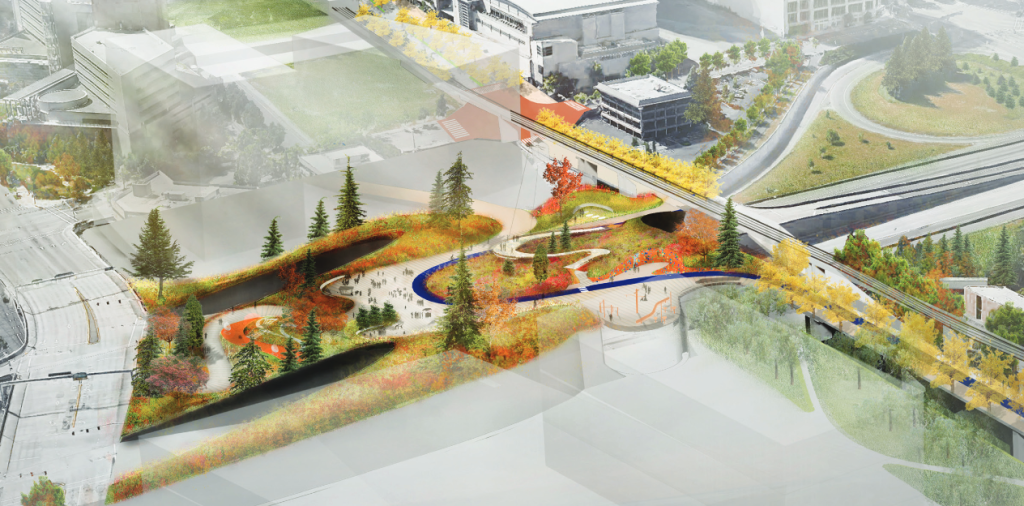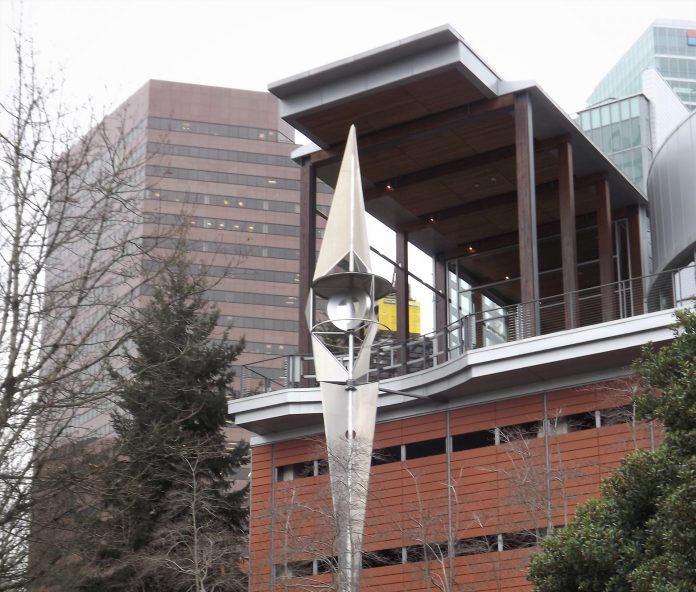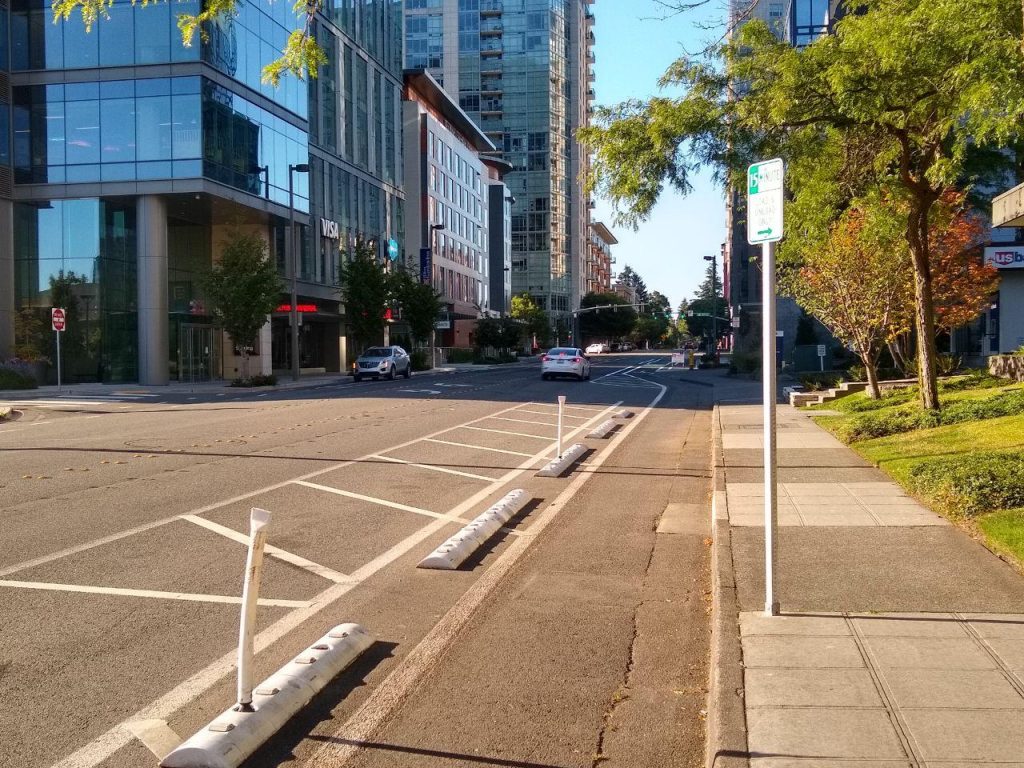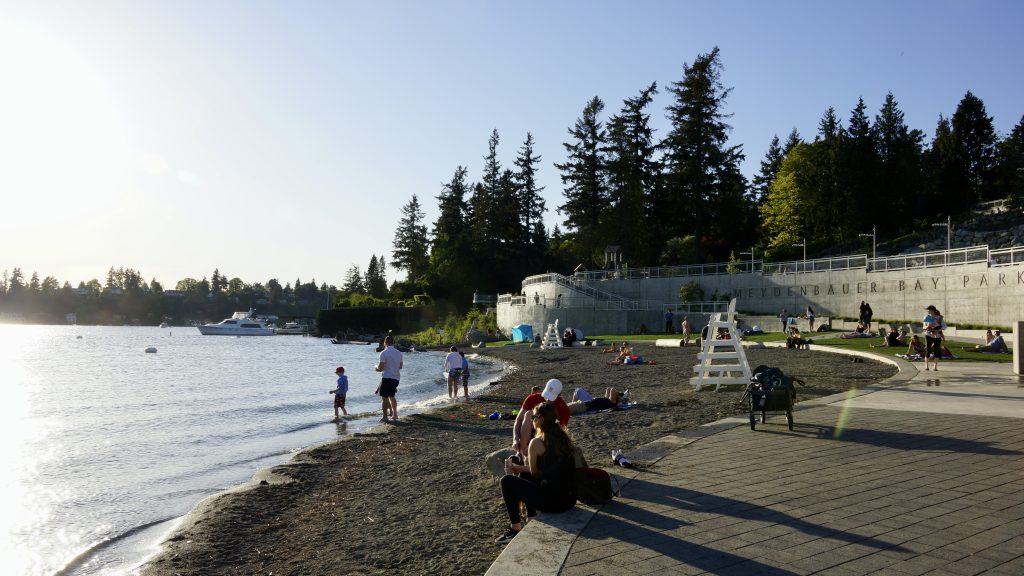Fall is here, and though the days getting shorter, the city council meetings are getting longer as chief executives from local jurisdictions each put forward their draft budgets. For the City of Bellevue, that means a 2023-24 biennial budget of over $2.2 billion, including a nearly $600 million general fund, and a staff of over 1,500 full-time employee (FTE) positions.
Given the size and scope, it’s understandable that the full draft budget nears 800 pages in length. The City Manager’s office released a 20-page Executive Summary that gives the highlights, but it naturally does not delve too deep into specific funds, programs, or capital projects. After a week of being released to the public and two separate city council discussions (with many more to come), here are the highlights that might have the most direct effect on the lives of people who live, work, study in, or care about Bellevue.
Keep in mind that there are ways to engage with Bellevue’s budget making process. Through October 10th, Bellevue is accepting feedback through an online budget values survey, which will be followed by an in-person neighborhood leadership gathering at City Hall on Tuesday, October 11th from 6:30-8:00 pm.

New taxes
Under Washington State law, the total property tax that a jurisdiction may collect may only increase by 1% from year to year (excluding any voter-approved levies, which may rise with inflation). Because the City of Bellevue is continuing to grow and urbanize while a significant portion of its revenues are legally not allowed to keep pace, Finance Director Toni Call has said there is a structural imbalance between the city’s revenues and expenditures that will lead to a continuously-growing deficit over the next several years barring state-level action.
Although revenues have slightly changed over what was forecasted earlier this year, annual deficits could still grow to nearly $10 million in as soon as four years. To plug the gap in the short term, City Manager Brian Miyake has proposed the following revenue adjustments:
- A 2% property tax increase in 2023 followed by a 1% increase in 2024;
- An increase of 0.01 points to the B and O tax rate: from 0.1496% on gross receipts to 0.1596%; and
- An adjustment to land use review fees so that they’re paid for 100% by the applicant (previously 50%).
Because Bellevue City Council has, in previous years, chosen to not increase property taxes by its allotted 1% annual increase, the City has accrued banked capacity that it can choose to collect later per state law. Therefore, the planned 2% increase in 2023 would be composed of its allowed 1% increase for 2023 and usage of 1% of its banked capacity. A 2% increase would represent an increase of $18 annually for a property with an assessed value of $1,000,000.
As for the B and O tax, the small increase would be the first time the tax has been raised since 1989. According to budget documents, the new B and O rate would only be slightly above the regional average of 0.1532%. Additionally, Bellevue’s current property tax rate of $0.84 per $1,000 of assessed value (A.V.) is nearly 50% lower than the average among Washington cities with at least 20,000 people.
Transportation
Most transportation projects of note fall under the Capital Investment Program (CIP) Plan, which is budgeted on a seven-year cycle and includes capital projects and programs in community development, parks, transportation, and more. Not counting utilities projects, the 2023-2029 CIP totals $808 million, with $293 million spread across over 66 transportation projects.
A key funding segment for transportation projects in Bellevue comes from the Neighborhood Connectivity, Safety, and Congestion levy that voters passed in 2016. Across 2023 and 2024, staff plan to spend $17.1 million on 47 projects, including 14 bicycle improvements and three sidewalk projects. Additionally, 14 levy-funded projects will help improve safety in neighborhoods through traffic calming, new crosswalks, and speed management infrastructure. Across the life of the seven-year CIP, funding for such safety and connectivity projects is expected to grow to $52 million, which represents a $7 million increase from the previous 2021-2027 CIP.
Two key safety projects that were introduced in the previous CIP, the Vision Zero Rapid Build Program and the High Comfort Growth Corridor Bike Network, have had their funding extended in this preliminary budget. Funds for the Vision Zero program, which helps implement tactical safety improvements on high-injury roadways, have been extended through 2029 to match previous levels (approximately $358,000 per year).
For the High Growth Corridor Bike Network, which will help bring bicycle infrastructure to more streets in the city’s growth corridors of Downtown, Wilburton, and BelRed, only $1.5 million had been dedicated to the project in the previous 2021-27 CIP, at $500,000 per year across just the first three years. In this preliminary budget however, funding for the project has been maintained at this level through 2029, meaning that an additional $3 million has been made available for the program.
Compared to the previous seven-year CIP, funding levels have also increased for other multimodal projects. Funds for improving pedestrian and bicycle connections to light rail stations have been increased by $2.3 million, to total $5.8 million through 2029. Additionally, over $11 million has been dedicated to neighborhood sidewalk improvements, an increase of $2.5 million over the 2021-27 CIP.
The new budget also adds several new line-items that will either create new multimodal connections add some seed funds to contribute towards future improvements. For example, nearly $6.9 million has been added to reflect new Move Ahead Washington funding for the next portion of the Mountains to Sound Greenway trail, connecting 142nd Place SE and 150th Avenue SE. Staff have also allocated $3.6 million to the design of a new non-motorized crossing over I-405, a new route that will help advance Bellevue’s vision of the Grand Connection‘s extension into Wilburton.

Additionally, although community pushback was not able to stop the advance of a preferred alternative for a new off-ramp onto I-405 in south Wilburton, the pressure was enough to get councilmembers to express support for additional multimodal connections in the area. Staff’s addition of $300,000 in CIP funding to study and design improvements will hopefully act as an initial investment to be followed by concrete project implementation funds in future cycles.
Public safety
Expenditures in the police department are set to grow by 21.2% (nearly $22 million) in the 2023-24 budget compared to the previous biennium. During Monday’s city council meeting, Bellevue Police Chief Wendell Shirley confirmed that this funding will help create 19 new positions for commissioned officers and two new positions for un-commissioned staff.
A portion of this increased public safety funding will also go to the implementation of two new police department programs. As part of a review of the department’s use of force policies, the City received significant feedback on the implementation of a body-worn cameras program. Across the 2023-2024 General Fund, $2.73 million will be spent on a new program’s implementation, including five FTEs for administration.
Additionally, the preliminary budget includes funding for a full implementation of the Community Crisis Assistance Team (CCAT) program. Originally piloted for four months in 2020, the currently envisioned iteration of the program would see five teams, each comprised of one police officer and one mental health professional, available to respond to behavioral health calls. Total program cost across the two years is estimated at $5.56 million.
Although not explicitly listed as a budget line-item, Chief Shirley’s presentation on Monday evening also introduced his desire to create a BPD unit specifically to patrol transit facilities, like Bellevue Transit Center, park and rides, and soon-to-open light rail stations. Shirley said that increased officer presence would increase both safety and the perception of safety amongst transit users, but some councilmembers noted the redundancies in BPD providing additional patrols, given that Sound Transit contracts with the King County Sheriff’s Office to provide policing at its stations.
Bellevue Fire Department is seeing a similar overall budget increase of $22.2 million (18.1%) across 2023-24. These funds are slated to go towards enough staffing hours for 18 new FTE positions, continued construction of Fire Station 10, renovations of Fire Station 4, and other projects.
Environmental stewardship and parks
With Bellevue seeking to reduce its greenhouse gas emissions by 50% in just eight years’ time, community members have been repeatedly advocating for increased dollars towards implementation of Bellevue’s Environmental Stewardship Plan. Compared to the 2021-27 CIP, an additional $1.8 million has been added to the city’s general Environmental Stewardship Implementation fund, with investments totaling $2.94 million over the next seven years. The additional funding will support the creation of a new Limited Term Employment (LTE) position, as well as the implementation of further projects identified in the plan.
To support emissions reductions among municipal staff, two entirely new CIP line items have been created to build electric vehicle infrastructure and improve energy efficiency. Nearly $3.5 million will be spent to add 102 electric vehicle charging stations at Bellevue City Hall and Bellevue Service Center, a project that is supposed to help meet the goal of a 50% electric vehicle fleet by 2030. An additional $3.8 million will support energy efficiency projects and new solar installations at city facilities.
On the parks front, much has been discussed over the last several months on finding supplemental funding through an updated parks levy, which will be on voters’ ballots this November. Even if residents reject the levy however, this draft budget allocates nearly $150 million across the seven-year CIP towards 25 separate projects.
Multiple new projects in this budget cycle focus on land acquisitions in Bellevue neighborhoods, like Factoria and Eastgate, that have been identified as park deserts. In addition to $5 million in new funding for each of those areas, $2.5 million has been devoted each to shoreline restoration and park trails. With increasing access to the waterfront a significant priority of the recently-completed Parks and Open Spaces plan, it’s understandable to see an increased investment of $12 million devoted to advancing the next phase of Meydenbauer Bay Park work.
Although the budget process is well underway, there is still plenty of time for interested parties to provide feedback. Written and oral comments can be provided during upcoming city council meetings and during the final public hearing on Monday, November 7th. Also, as mentioned previously, through October 10th, Bellevue is accepting feedback through an online budget values survey, which will be followed by an in-person neighborhood leadership gathering at City Hall on Tuesday, October 11th from 6:30 – 8:00 pm. City staff have said that the leadership gathering is open to anyone who is interested in the health and quality of life in their Bellevue neighborhood.
During the previous budget cycle, councilmembers used funds from the Councilmember Contingency line item to create new programs or supplement initiatives that they cared about. With $2 million available for 2023 and 2024, there’s still room for meaningful changes dependent upon the community’s feedback.
Chris Randels is the founder and director of Complete Streets Bellevue, an advocacy organization looking to make it easier for people to get around Bellevue without a car. Chris lived in the Lake Hills neighborhood for nearly a decade and cares about reducing emissions and improving safety in the Eastside's largest city.




